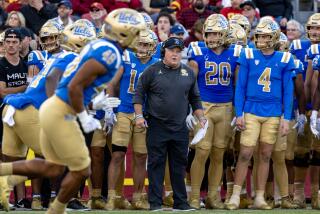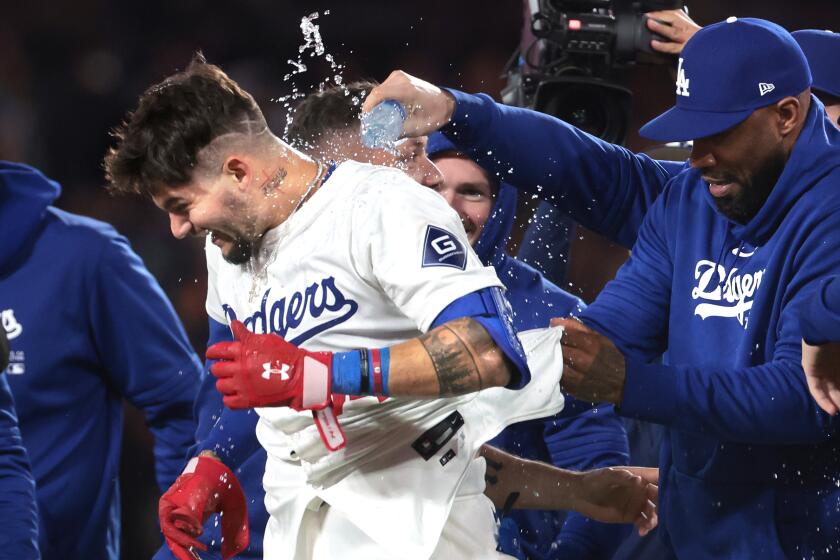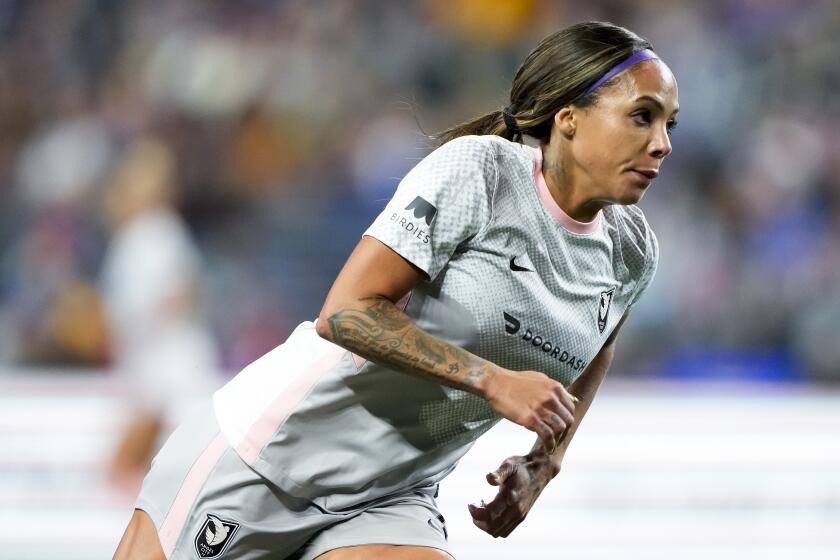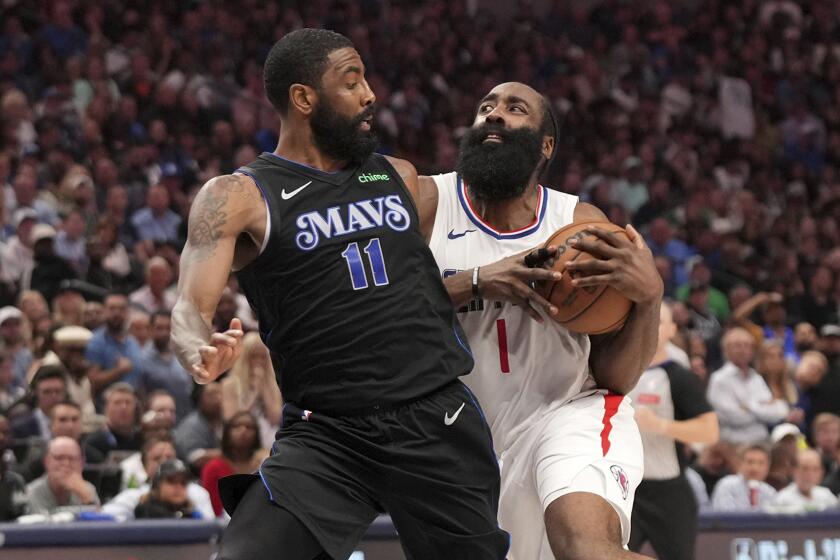Commentary: Northwestern ruling is a win for the NCAA but not a loss for the cause
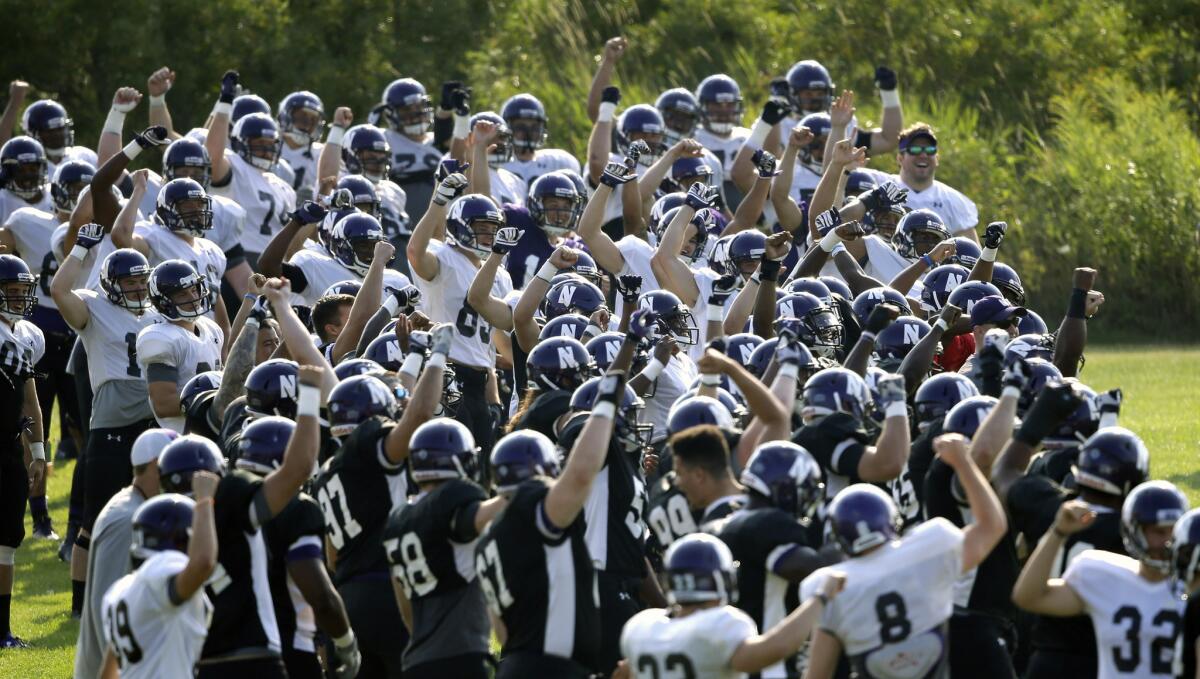
Northwestern football players practice at the University of Wisconsin-Parkside campus on Aug. 17.
In a unanimous vote, the National Labor Relations Board announced Monday that Northwestern University football players could not unionize.
The ruling by the five-member panel was a victory for the NCAA but not a defeat for the cause.
As noted in the decision, the over-arcing scope of the Northwestern players’ case -- that they are employees of the university under federal labor law -- was incompatible with the reality of big-time college football.
The board said it declined to exercise jurisdiction in the matter because doing so would not promote uniformity and labor stability in college football. It could also upset the competitive balance between teams, the ruling said.
Also, the case involved only private schools, which represent a minority of institutions that play Division 1 football.
In short: It was never going to work. In theory, football players at USC, a private school, would have been able to unionize, but players from crosstown UCLA, a public school, would not.
Imagine that.
The NLRB noted that a ruling siding with the Northwestern players “would not promote labor stability due to the nature and structure of NCAA Division I Football Subdivision (FBS).”
The board’s statement continued: “By statute the Board does not have jurisdiction over state-run colleges and universities, which constitute 108 of the roughly 125 FBS teams.”
So though a ruling was issued Monday, it did not address the matter’s key question, and the cause was not dismissed.
The Northwestern case, along with others that threaten the NCAA, has already promoted powerful football commissioners to address many of the issues brought forth in the complaint.
The commissioners of the Pac-12, Big Ten, SEC, Big 12 and ACC have been proactive in providing more benefits and protections for players.
The “power five” leaders have pushed the NCAA to increase meal allowances and provide an additional “cost of attendance” stipend. Most schools have now guaranteed four-year scholarships for players. The commissioners have also started to address safety concerns by limiting contact for football players.
Unionization in college football was -- and is never -- going to work, but the Northwestern case was a wake-up call.
“It’s forced us to focus on and begin to resolve issues that have lingered for far too long,” Commissioner Larry Scott said last month at Pac-12 Media Days.
Huge broadcast deals have afforded the major conferences the ability to address concerns raised in the Northwestern case. For example, the Pac-12 is spending $3.5 million per year to conduct research on head trauma, mental illness and other health and safety-related issues.
The commissioners aren’t just nice guys trying to do the right things for their “student-athletes.” They know staying ahead of game, the lawyers and even the NCAA is crucial to survival.
Northwestern was just one case. There are others in the pipeline.
The people running football are smart, but also worried.
If a legal “win” over the Northwestern players can produce this much change, imagine what a defeat might bring?
More to Read
Get our high school sports newsletter
Prep Rally is devoted to the SoCal high school sports experience, bringing you scores, stories and a behind-the-scenes look at what makes prep sports so popular.
You may occasionally receive promotional content from the Los Angeles Times.

